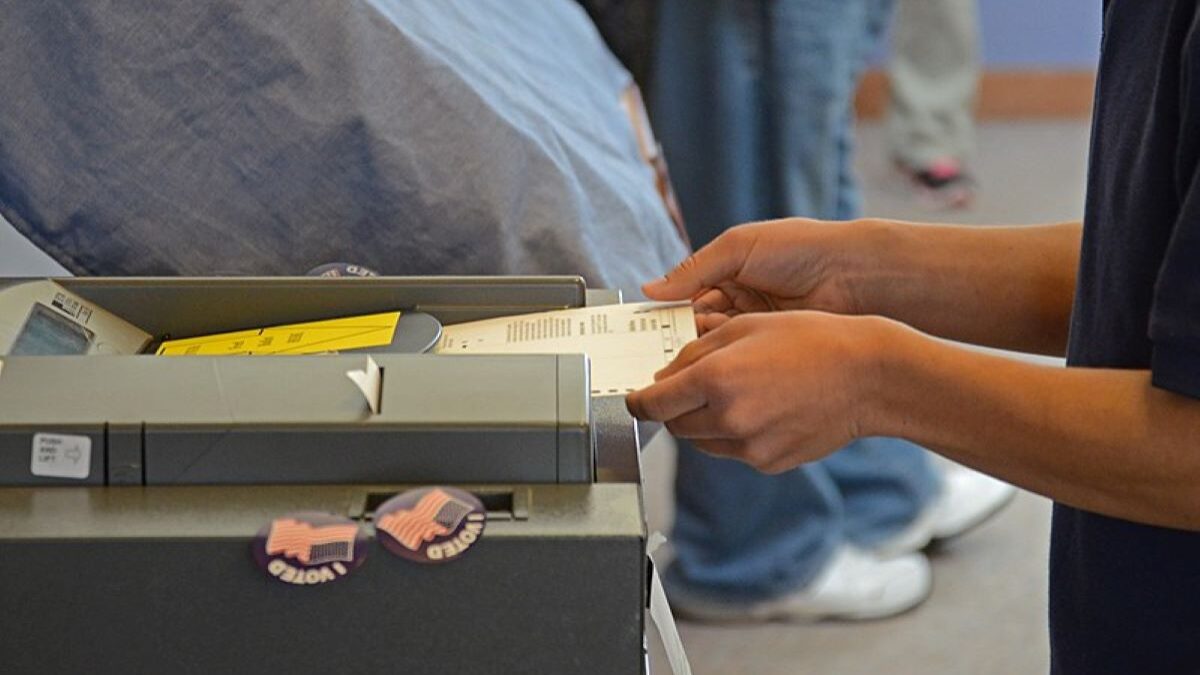The Missouri General Assembly successfully passed legislation on Wednesday that restricts state and local election officials from receiving and using private funds to conduct elections. The bill now heads to Gov. Mike Parson’s desk for signature.
Passed by the state House (97-47) and Senate (23-11), the measure (HB 1878) mandates that “neither the state of Missouri nor any political subdivision thereof that conducts elections shall receive or expend private moneys, excluding in-kind donations, for preparing, administering, or conducting an election, including registering voters.”
The bill later goes on to define in-kind donations as “Personal protective equipment,” “Water,” “Locations at which an election may be conducted,” and “Food for an election authority, staff of an election authority, election judges, watchers, and challengers.”
As noted in the bill, however, “[I]n any even-numbered year in which the amount of state funds appropriated to proportionally compensate counties pursuant to sections 115.063 and 115.065 is less than the amount of such funds that were appropriated in the previous even-numbered year,” the Missouri secretary of state may receive private funds “to disburse to counties based on the amount of registered voters in each county.”
“The amount of private moneys that may be received by the secretary of state shall not exceed the difference between the amount of state funds appropriated in the previous even-numbered year and the amount appropriated in the pending even-numbered year, plus ten percent of the total amount that was appropriated in the previous even-numbered year,” the measure reads.
In addition to limiting nongovernmental entities’ ability to influence election operations, the legislation also prohibits ballot drop-boxes, the authorization of mail-in ballots “by any executive or administrative order,” and the changing of state election laws at least 26 weeks (or closer) before a presidential election, among other dictates.
While speaking with The Federalist, the bill’s primary sponsor and state GOP Rep. John Simmons said, “HB 1878 is the most comprehensive election integrity bill to come out of the [Missouri] General Assembly,” saying the legislation “can and will serve as a template for other states to improve their election systems.”
“The integrity of our election process before, during, and after the vote is a structural cornerstone by which we have faith in our republic[an] form of [government],” he said. “All elections in the U.S. are only as good as the moral character, and trustworthiness of the people carrying out those elections.”
When pressed by The Federalist on whether Parson would sign the bill, a spokeswoman for his office declined to commit the governor to the measure, instead saying that Parson would “thoroughly review” any and all legislation that reaches his desk.
If signed into law, the bill would officially bar left-wing advocacy groups such as the Center for Technology and Civic Life (CTCL) from interfering in election processes. During the 2020 election cycle, Meta CEO Mark Zuckerberg gave upwards of $400 million to CTCL to quietly alter state and local election operations, with the organization spending more than $6.8 million “Zuckbucks” in Missouri alone. Analyses found CTCL’s spending was heavily slanted towards Democratic regions, making it effectively a partisan get-out-the-vote operation.
Most recently, CTCL announced it will be expanding its operations into future elections with the launching of U.S. Alliance for Election Excellence, “a five-year, $80 million strategy to envision, support, and celebrate excellence in U.S. election administration.”
“Every American voter, no matter their zip code, should have access to a process that is fair and trustworthy,” said Tiana Epps-Johnson, executive director of CTCL. “Unfortunately, years of under-investment means many local election departments often have limited capacity and training. The U.S. Alliance for Election Excellence will bring together world-class partners so that local election officials no longer have to go it alone.”
Additional groups involved with the initiative include the Center for Civic Design, U.S. Digital Response, and the Center for Secure and Modern Elections, among others.








